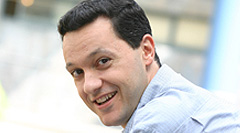Case Studies

INDITHERM, UK : Established in many overseas markets, but unable to capitalize on opportunities
Back in 2010, Inditherm was a small UK PLC trading in the area of patient warming products, with over 75% of their turnover in the UK market and less than 25% in exports. When trading conditions in the UK became difficult, it was obvious that the international market was where they should place their efforts.
Although Inditherm already had a network of international distributors, they did not, however, have an international sales team to manage them, and nor could they afford anyone. The Rodnight Partnership was therefore appointed in 2011 to manage the international business in all of the African continent, as well as the Middle East, working on a commission basis, with certain expenses also covered.
Commenting on the relationship, Nick Bettles, CEO of Inditherm at the time, said: “This was a wonderful opportunity for us to get our product seen in the market. The Rodnight Partnership was able to give us feet on the ground in many of the key countries. They were able to train our distributors in the field, and make important hospital visits. A product range such as our patient warming offering needs to be seen by the end user, and distributor reps need to be fully trained. All of this was done expertly by sales specialists from The Rodnight Partnership, allowing me and my management team to concentrate on other priorities. The nature of The Rodnight Partnership business was such that they could have people calling on our key distributors anything up to four times a year, and this is something that we could never have achieved ourselves.”
During the period of the appointment The Rodnight Partnership was able to bring significant successes to the table, including a number of lucrative contracts in Saudi Arabia, Jordan and the UAE. Elsewhere Inditherm products were exhibited by The Rodnight Partnership at exhibitions in Kenya, Uganda, South Africa and Nigeria, allowing Inditherm to get exposure which would have been otherwise impossible. One result of these efforts was the recent acceptance of under-patient warming by one of the largest private hospital groups in South Africa.
Read the previous Case Study Read the next Case Study


